Toxicology is a significant factor contributing to the attrition in the development of therapeutic drugs, and it is a crucial consideration when selecting candidate drugs to progress through the development pipeline.

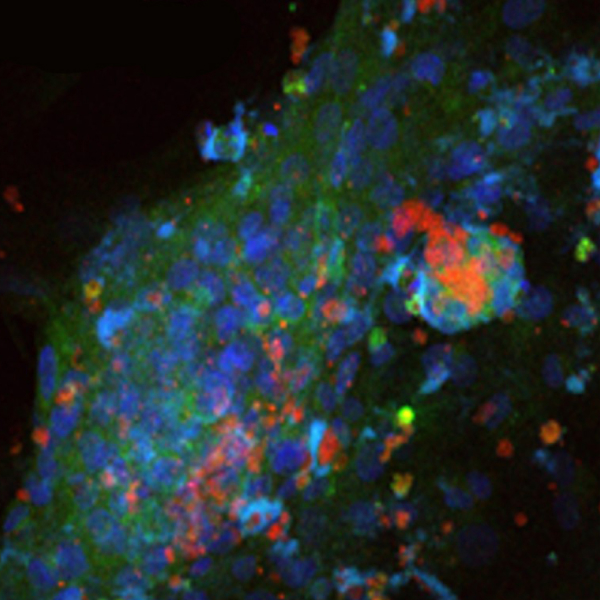

Toxicology
Drugs exhibiting nephrotoxicity can impact different types of kidney cells depending on the specific drug, with a single drug capable of being toxic to various kidney cell types.
The nephrotoxic effects observed in drugs can be faithfully replicated in kidney organoids, resembling the in vivo model.
This provides a valuable platform for conducting mechanistic research on drug toxicity, enabling a detailed exploration of the underlying processes involved in drug-induced kidney damage.
Cell Type
· iPSC
Organoid type
· Kidney organoid
Cardiac organoids closely mimic the cellular composition of the human heart, offering an accurate representation of cardiac responses.
This fidelity allows for early identification of adverse effects, effectively preventing the progression of toxic candidates in drug development.
Cell Type
· iPSC
Organoid type
· Cardiac organoid

Drugs exhibiting nephrotoxicity can impact different types of kidney cells depending on the specific drug, with a single drug capable of being toxic to various kidney cell types.
The nephrotoxic effects observed in drugs can be faithfully replicated in kidney organoids, resembling the in vivo model.
This provides a valuable platform for conducting mechanistic research on drug toxicity, enabling a detailed exploration of the underlying processes involved in drug-induced kidney damage.

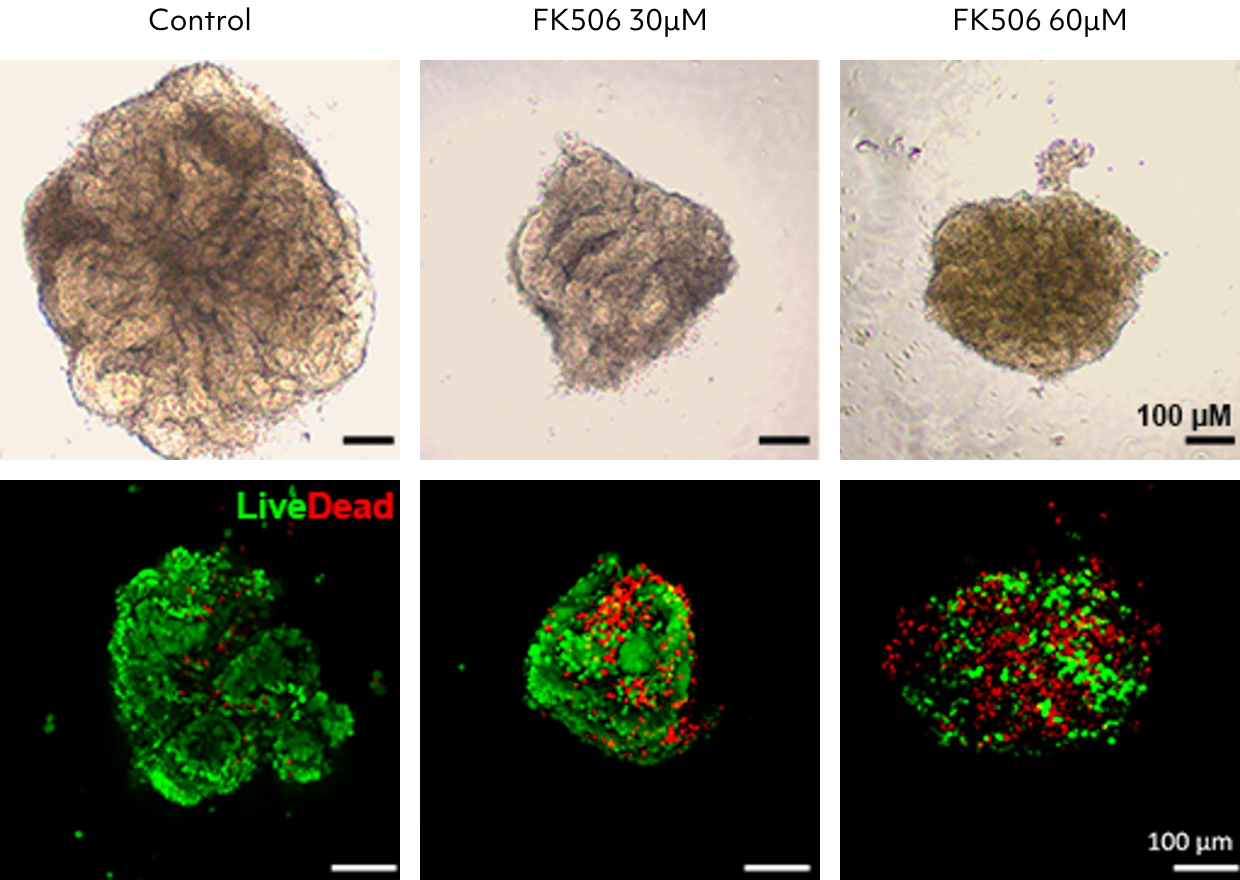
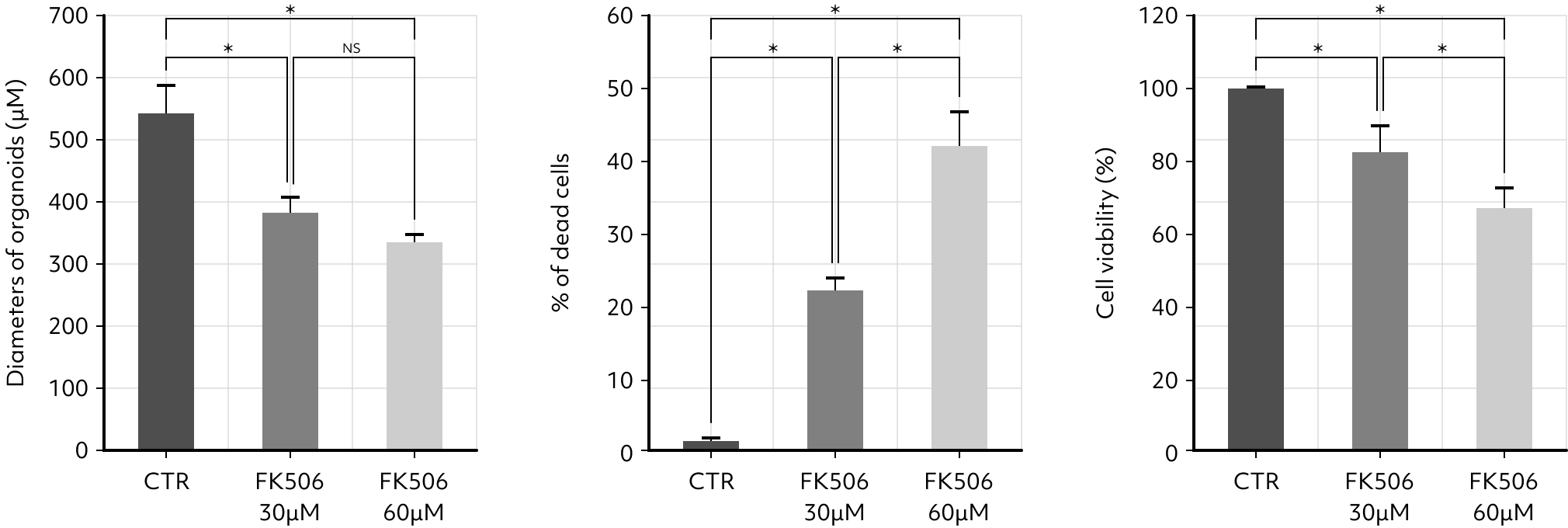

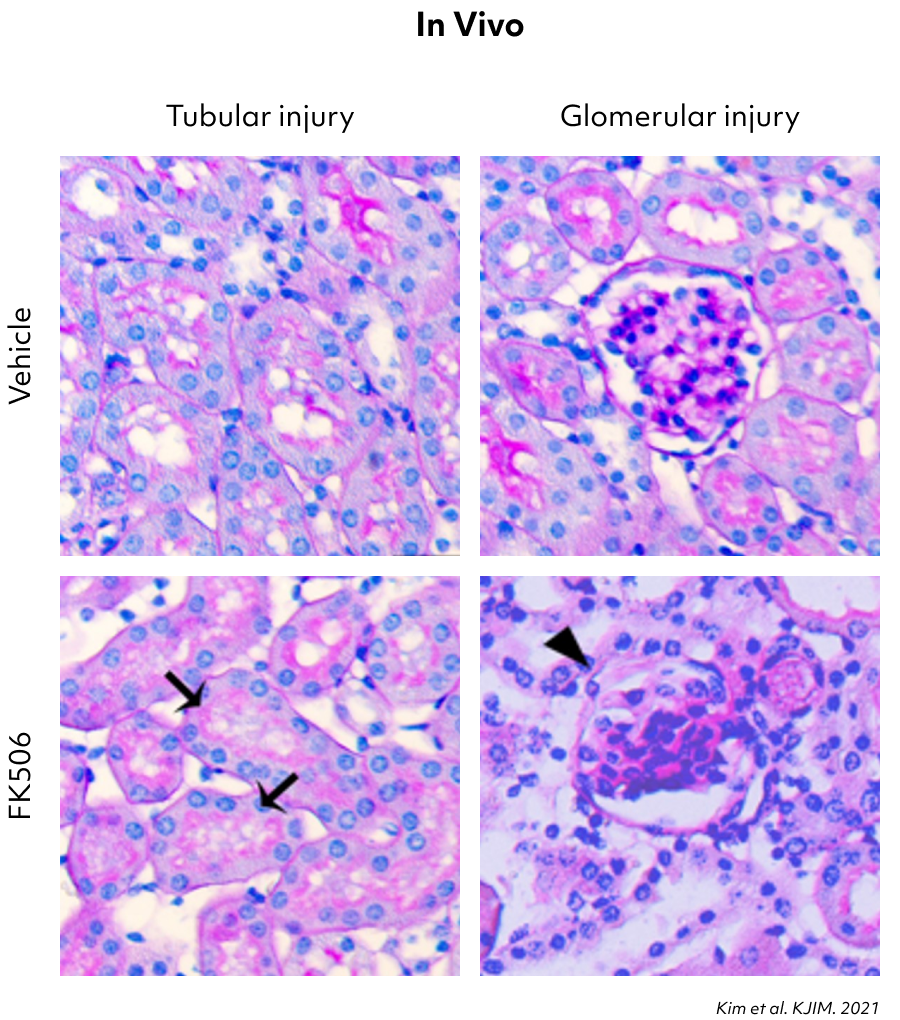
Kidney organoids recapitulated the animal model of tacrolimus nephrotoxicity.
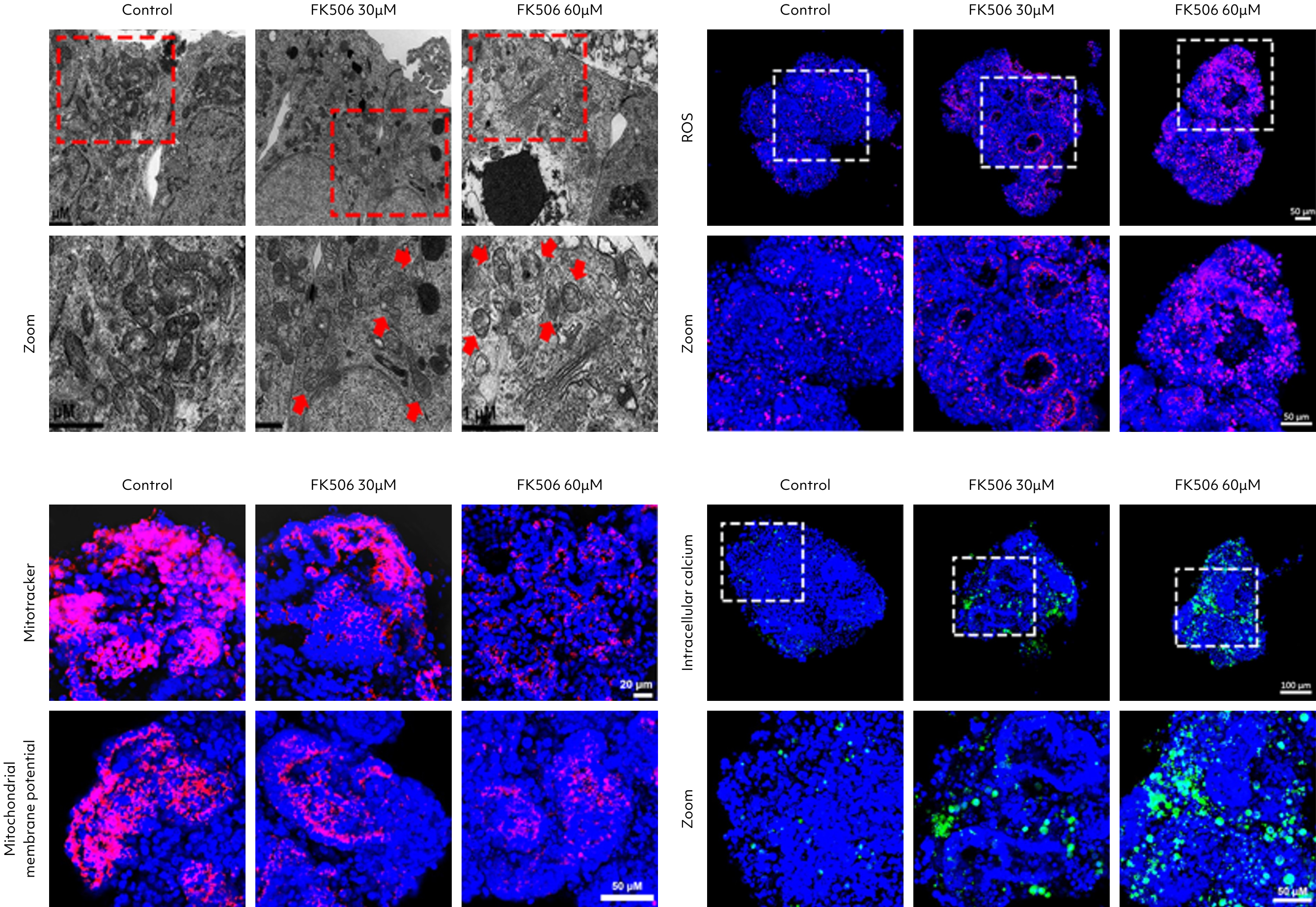
Kidney organoids showed the accumulation of damaged mitochondria and increased oxidative stress in tacrolimus nephrotoxicity model.
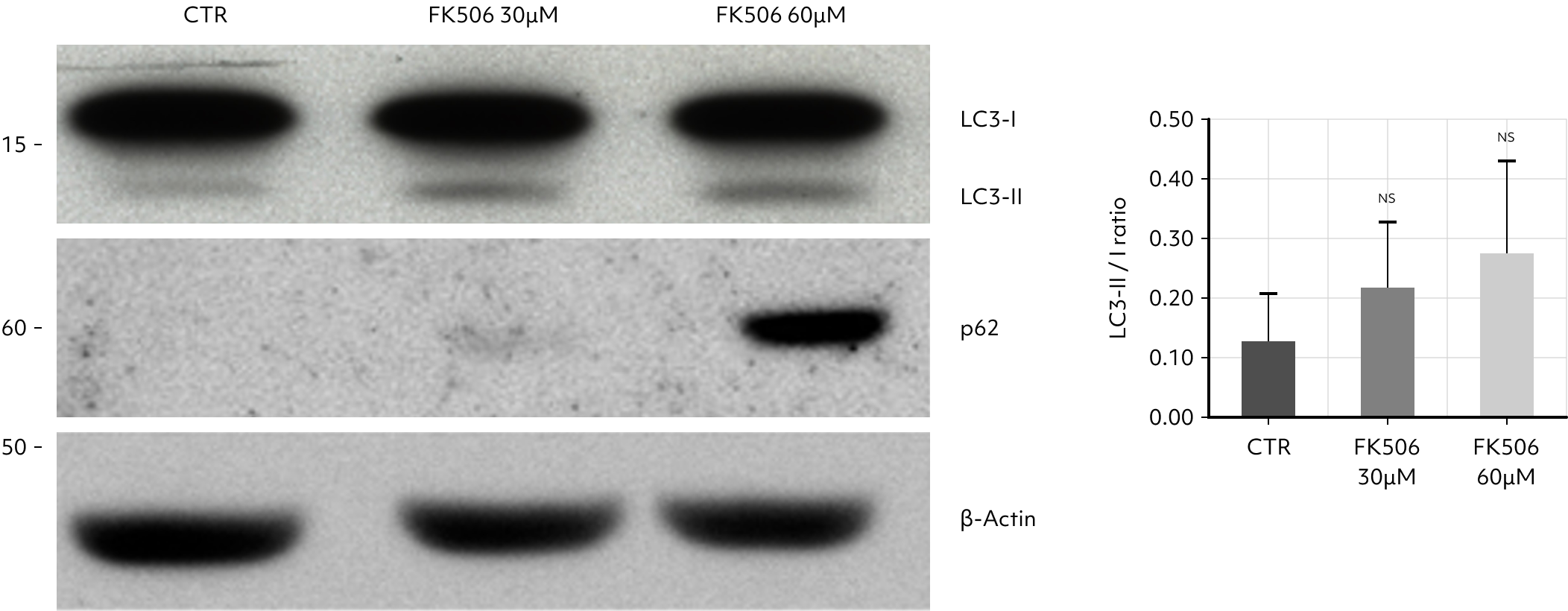

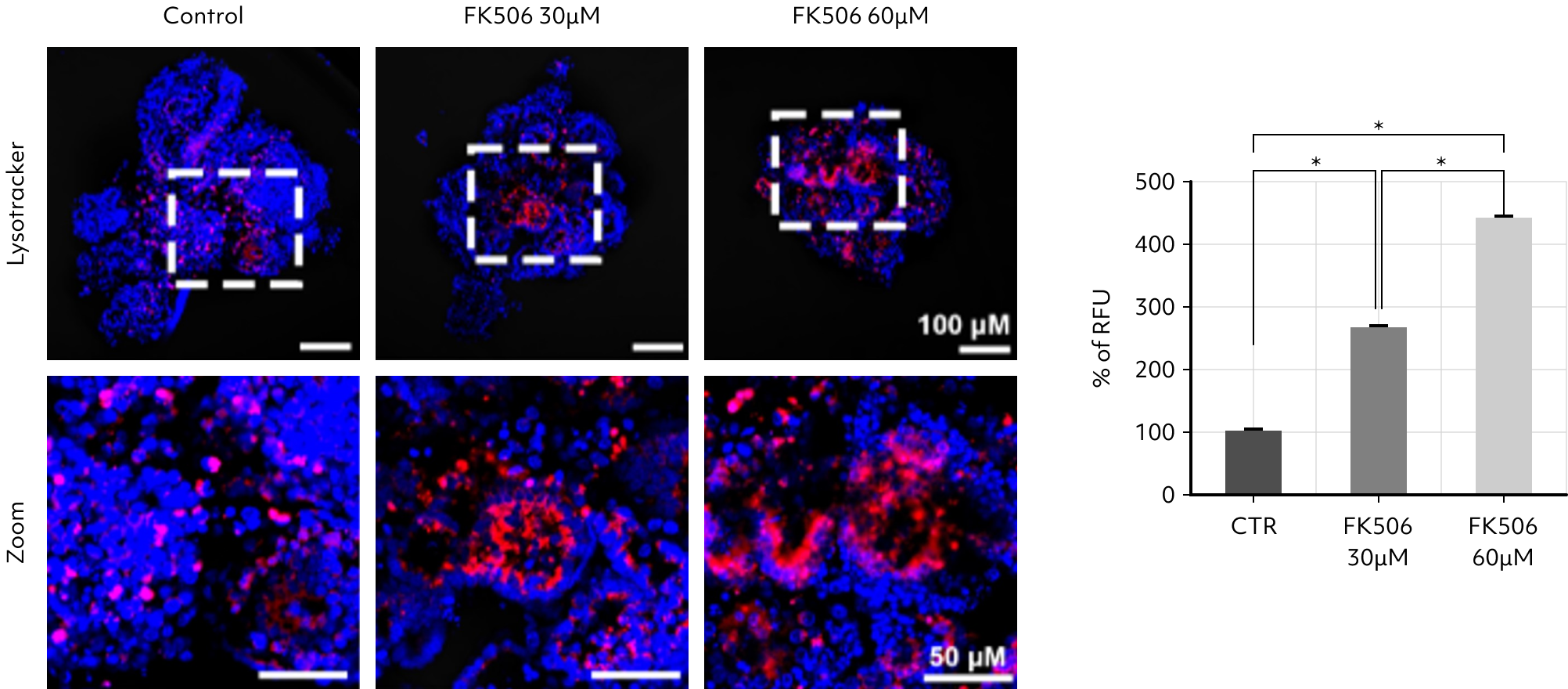
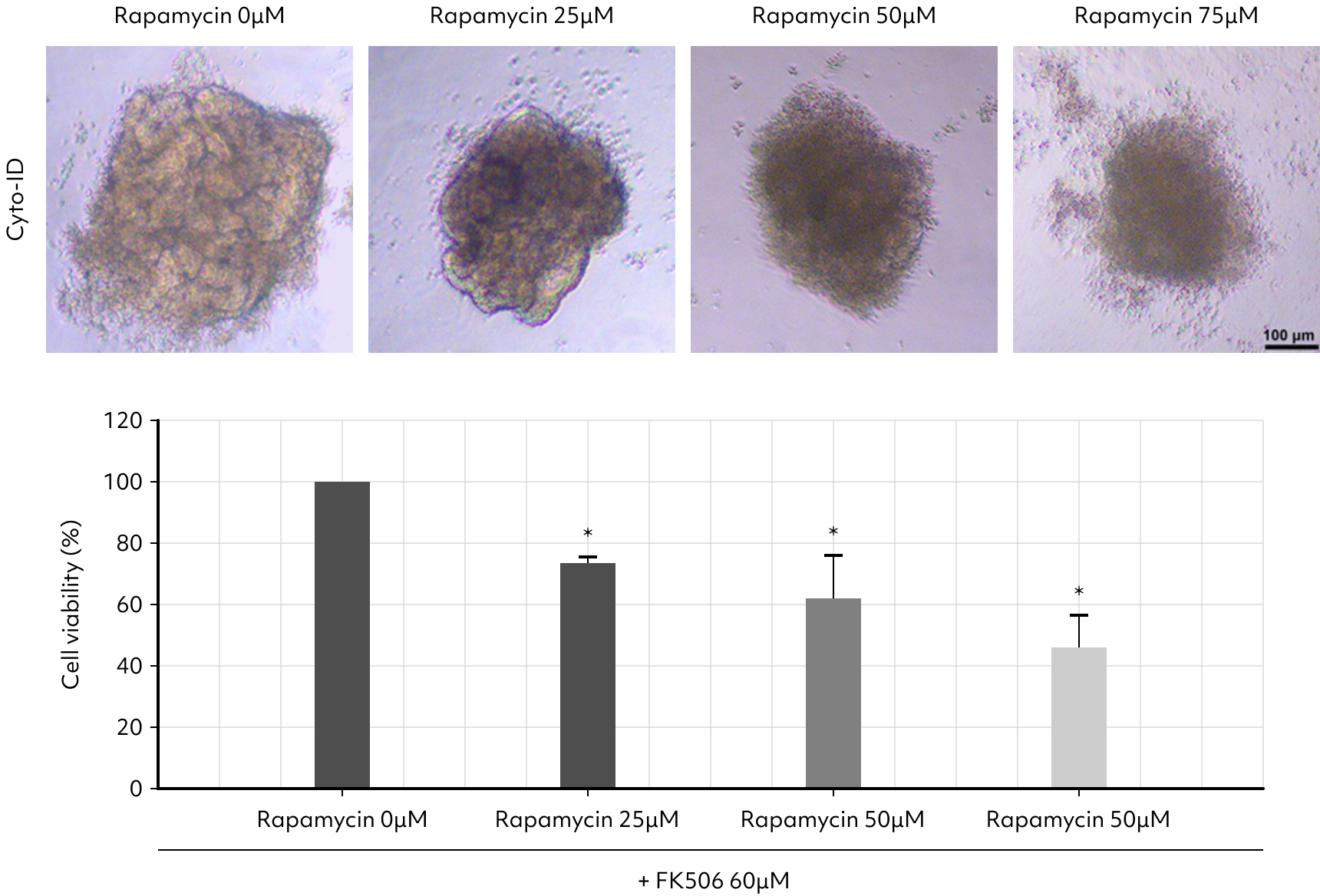
Kidney organoids revealed the role of autophagy in tacrolimus nephrotoxicity